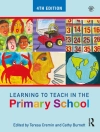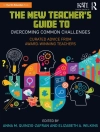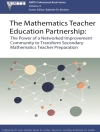Interviews are often seen as a quick, cheap, and seemingly low-stress data collection method, but once students obtain data, they can be overwhelmed at the amount of information they have to manage, sort, and analyse, even if they only have a few participant responses.
There are plenty of books on data management, coding, and analysis, but no student has time to read and internalize this much detail if a deadline is looming. Use Your Interview Data takes students through the essentials of managing, coding, and interpreting interview data so they have the overview needed to negotiate their data systematically and ensure they are not marked down for haphazard or incomplete interpretation. This Little Quick Fix provides students with the understanding and skills they need to manage, sort and analyse their interview data. Helen Kara’s overview enables students to negotiate their data systematically and give a complete interpretation for their research method assignment, essay or project.
Little Quick Fix titles provide quick but authoritative answers to the problems, hurdles, and assessment points students face in
the research course, project proposal, or design—whatever their methods learning is.
- Lively, ultra-modern design; full-colour, each page a tailored design.
- An hour′s read. Easy to dip in and out of with clear navigation enables the reader to find what she needs—quick.
- Direct written style gets to the point with clear language. Nothing needs to be read twice. No fluff.
- Learning is reinforced through a 2-minute overview summary; 3-second summaries with super-quick Q&A
- DIY tasks create a work plan to accomplish a task, do a self-check quiz, solve a problem, get students to what they need to show their supervisor.
- Checkpoints in each section make sure students are nailing it as they go and support self-directed learning.
- How do I know I’m done? Each Little Quick Fix wraps up with a final checklist that allows the reader to self-assess they’ve got what they need to progress, submit, or ace the test or task.
表中的内容
Section 1: Why do I need to be systematic with my data?
Section 2: How can I get to know my data?
Section 3: How can I devise a coding frame?
Section 4: How can I use a coding frame?
Section 5: How can I create and use emergent coding?
Section 6: How can I analyse my data?
Section 7: What do I do once I have identified the themes in my data?
关于作者
Helen Kara is a leading independent researcher, author, teacher and speaker specialising in research methods, particularly creative methods, and research ethics. With over twenty years’ experience as an independent researcher Helen now teaches doctoral students and staff at higher education institutions worldwide. She is a prolific academic author with over 25 titles; notably Creative Research Methods: A Practical Guide and Research and Evaluation for Busy Students and Practitioners, both in their second editions. Besides her regular blogs and videos, she also writes comics and fiction. Helen is an Honorary Senior Research Fellow at the University of Manchester, and a Fellow of the Academy of Social Sciences. In 2021, at the age of 56, she was diagnosed autistic. Her neurodiversity explains her lifelong fascination with, and ability to focus on, words, language and writing.












